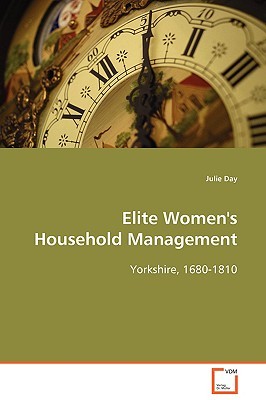
- We will send in 10–14 business days.
- Author: Julie Day
- Publisher: VDM Verlag
- ISBN-10: 3639105869
- ISBN-13: 9783639105865
- Format: 15.2 x 22.9 x 1.6 cm, softcover
- Language: English
- SAVE -10% with code: EXTRA
Reviews
Description
From the end of the seventeenth century to the beginning of the nineteenth century, the large households of the elite represented complex active communities where individuals held interdependent relationships with one another. Throughout the period an elite woman's managerial presence and performance within the dimensions of domestic space were key to her more public image and femininity. From primary sources a complex picture of authority and deftness arises in which the elite woman was expected to run the household within the wider departments of the country estate. For the elite women of the Yorkshire country house, this role was to have been one of difficult decision- making, influenced at all times by degrees of moral judgement over large numbers of people. The domestic space of the country house had long been associated with feminine accomplishment in the 'delicate' art of needlework or the knowledge of pickling and preserving. In her role as household manager an elite woman could actually exercise expressions of power and find that this space was more heavily imbued with command, authority and organisational skill.
EXTRA 10 % discount with code: EXTRA
The promotion ends in 18d.12:22:20
The discount code is valid when purchasing from 10 €. Discounts do not stack.
- Author: Julie Day
- Publisher: VDM Verlag
- ISBN-10: 3639105869
- ISBN-13: 9783639105865
- Format: 15.2 x 22.9 x 1.6 cm, softcover
- Language: English English
From the end of the seventeenth century to the beginning of the nineteenth century, the large households of the elite represented complex active communities where individuals held interdependent relationships with one another. Throughout the period an elite woman's managerial presence and performance within the dimensions of domestic space were key to her more public image and femininity. From primary sources a complex picture of authority and deftness arises in which the elite woman was expected to run the household within the wider departments of the country estate. For the elite women of the Yorkshire country house, this role was to have been one of difficult decision- making, influenced at all times by degrees of moral judgement over large numbers of people. The domestic space of the country house had long been associated with feminine accomplishment in the 'delicate' art of needlework or the knowledge of pickling and preserving. In her role as household manager an elite woman could actually exercise expressions of power and find that this space was more heavily imbued with command, authority and organisational skill.


Reviews